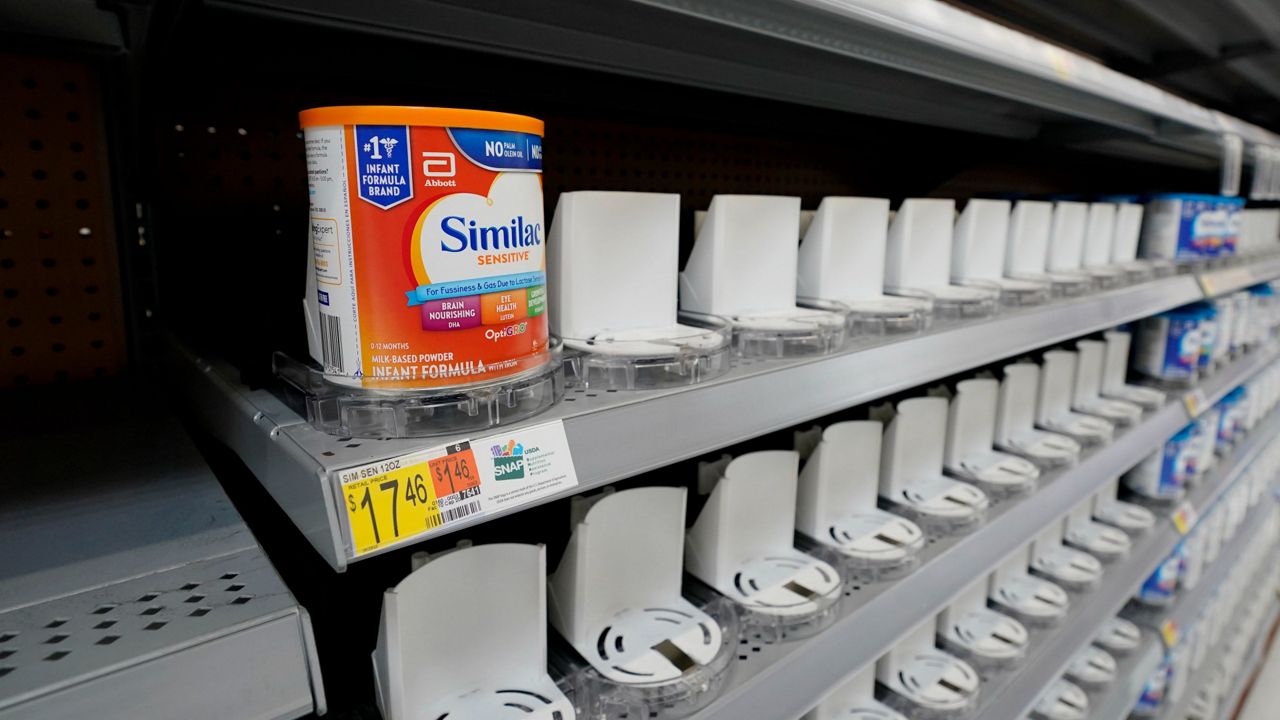Severe weather has forced Abbott Nutrition to pause production at a Michigan baby formula factory that had just restarted after being closed for several months, contributing to a national shortage.
What You Need To Know
- Severe weather has forced Abbott Nutrition to pause production at a Michigan baby formula factory that had just restarted
- The company said late Wednesday that production for its EleCare specialty formula has stopped, but it has enough supply to meet needs until more formula can be made
- Abbott says it needs to assess damage and re-sanitize the factory after severe thunderstorms and heavy rains swept through southwestern Michigan Monday evening
- The company didn't indicate how much damage the factory sustained
Production for Abbott's EleCare specialty formula has been suspended, but there is enough supply to meet demand until production is restarted, the company said. Abbott had prioritized ramping up production of the specialty formula for infants with severe food allergies and digestive problems who have few other options for nutrition.
Abbott says it needs to assess damage and re-sanitize the factory after severe thunderstorms and heavy rains swept through southwestern Michigan late Monday. Spokesman Jonathon Hamilton said flooding hit a few areas of the factory, but he declined to provide more specific details about damage.
The storm also brought high winds, hail and power failures to Sturgis, Michigan, where the factory is located. The company expects production and distribution to be delayed for a few weeks as it cleans the plant.
Once it restarts, the factory will begin with the production of EleCare and other specialty formulas. Abbott says it also plans to restart production of its Similac formula as soon as possible.
Abbott had initially restarted the factory on June 4 after it had been closed since February due to contamination.
The factory was closed after the Food and Drug Administration began investigating four bacterial infections among infants who consumed powdered formula from the plant. Two of the babies died. The company continues to state that its products have not been directly linked to the infections, which involved different bacterial strains.
FDA inspectors eventually uncovered a host of violations at the plant, including bacterial contamination, a leaky roof and lax safety protocols.
Abbott recalled several leading brands of formula in February, including Similac. That squeezed supplies that had already been strained by supply chain disruptions and stockpiling during COVID-19 shutdowns.
The ongoing formula shortage has been most dire for children with allergies, digestive problems and metabolic disorders who rely on specialty formulas. Federal officials have said the Abbott factory is the only source of many of those products, providing nutrition to about 5,000 U.S. babies, according to federal officials.
Abbott is one of just four companies that produce about 90% of U.S. formula. Hamilton said Abbott has produced 8.7 million pounds of formula in June, or 95% of what it produced the month before the recall.
He said much of that production was for Similac, and the figure doesn't include anything from the Sturgis plant.
Federal officials have said it could take several more weeks before formula supplies return to normal levels. President Joe Biden's administration has eased import rules for foreign manufacturers, airlifted formula from Europe and invoked federal emergency rules to prioritize U.S. production.



